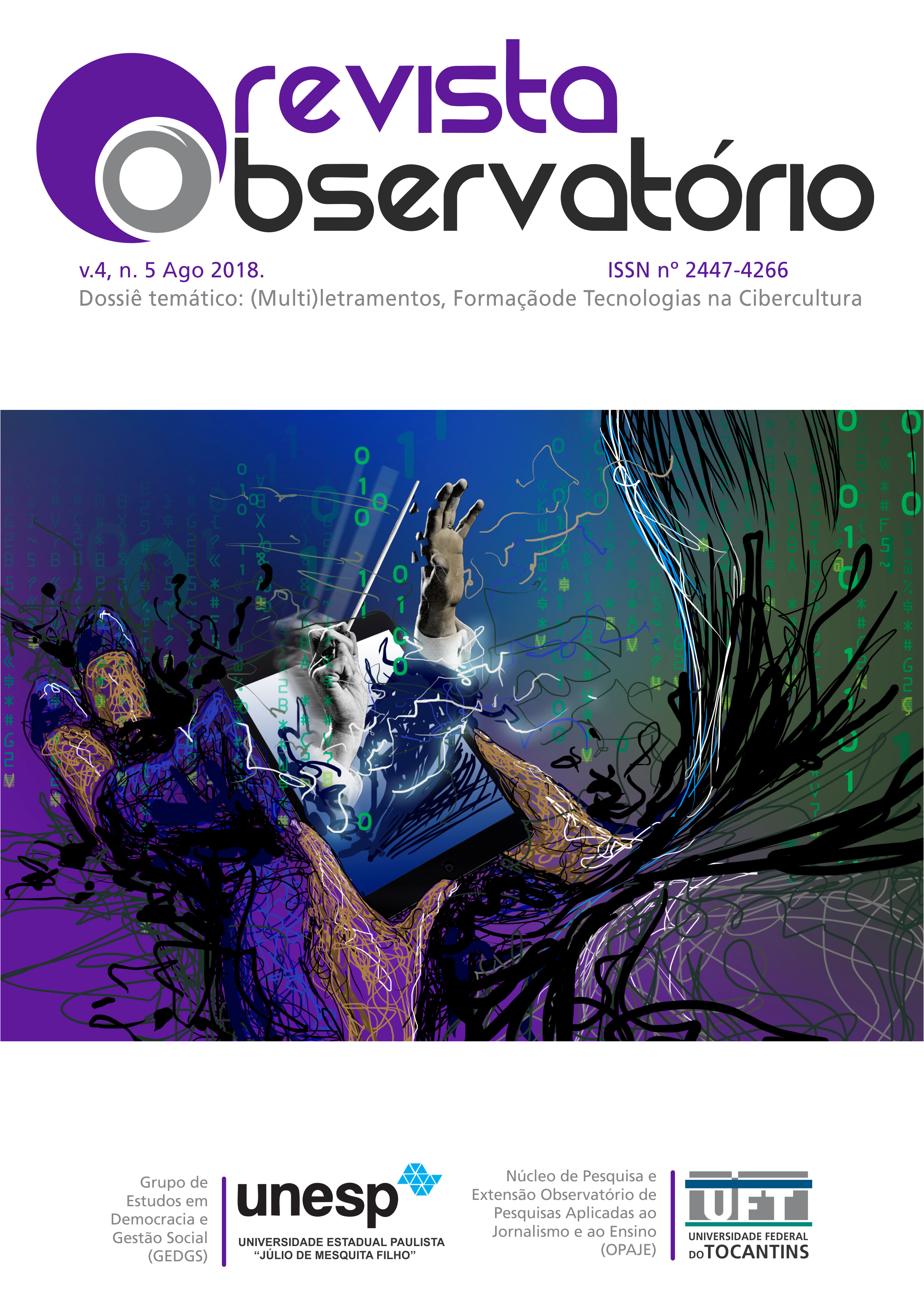LEARN TO UNDERSTAND FOR A TRANSFORMATIVE LEARNING: an Epistemological look
DOI:
https://doi.org/10.20873/uft.2447-4266.2018v4n5p900Keywords:
Learning, unlearning, relearning and continuing educationAbstract
The present work corresponds to a reflection about several theories and approaches of the learning and their relevance in the training of social agents, reflection that emerges from the practice of the training, and attending to the fact that the meaning of what it implies to learn and how it is that is learned is not at the center of the discussion in universities in Latin America, which emphasizes more what to teach rather than how to teach.
KEYWORDS: Learning; unlearning; relearning and continuing education.
Downloads
References
ATHERTON, J.S. (2003). Doceo: Learning as Loss 1. Perspective. Reading, Mass.: Addison-Wesley. www.doceo.co.uk/original/learnloss1.htm. (Consultado el 7 de febrero de 2005).
BLIGH, D.A. (2000). What’s the use of lectures? San Francisco: Jossey Bass Publishers.
BOLÍVAR, A. (2000). Los centros educativos como organizaciones que aprenden. Promesas y realidades. Madrid: Aula Abierta.
CLAXTON, G. (2001). Aprender. El reto del aprendizaje continuo. Barcelona: PAIDOS.
COTTÍN, A. G. (2001). “Desaprender Primero.” www.utp.ac.pa/articulos/desaprender.html (Consultado el 26 de febrero de 2004).
DIRKX, J. M. (2001). “The Power of Feelings: Emotion, Imagination and the Construction of Meaning in Adult Learning.” En Sharan B. Merriam (ed.) The New Update on Adult Learning Theory. San Francisco: Jossey-Bass.
DRUCKER, P. (2002). Escritos fundamentales. Buenos Aires: Editorial Sudamericana.
ECHEVERRÍA, R. (2002). Ontología del lenguaje. 6ta ed. Santiago de Chile: Océano.
FREIRE, P. (1999). “Enseñar no es transferir conocimiento.” Pedagogía de la Autonomía.
GOLEMAN (1995). Emotional Intelligence. New York: Bantam Books.
HEIFETZ, R. y M. Linsky (2003). Liderazgo sin límites. Manual de supervivencia para managers. Barcelona: PAIDOS.
HERON, J. (1999). The Complete Facilitator’s Handbook. Londres: Kogan Page.
KEGAN, R. (2000). “What “Form” Transforms? A Constructive Development Approach to Transformative Learning.” En Jack Mezirow and Associates, Learning as Transformation. San Francisco: JosseyBass Publishers.
KEGAN, R. (1982). The Evolving Self. Problems and Process in Human Development. Cambridge: Harvard University Press.
KITCHENER, K. (1983) “Cognition, Metacognition and Epistemic Cognition.” Human Development. 26: 222-223.
LEAMNSON, R. (2000). “Learning as Biological Brain Change.” Change, p. 34-40.
MINTZBERG, H. (2004). “Third-Generation Management Development.” Training and Development. March.
MORIN, E.; E. R. Ciurana y R. D. Motta (2002). Educar en la era planetaria. Barcelona: Gedisa.
MORIN, E. (1999). Los siete saberes necesarios para la educación del futuro. Paris:
UNESCO.
OBERLECHNER, T. y V. MAYER-SCHOENBERGER (2002). “Through Their Own Words: Towards a New Understanding of Leadership Through Metaphors.” Faculty Research Working Paper Series, John F. Kennedy School of Government, Harvard University.(Disponible en http://ssrn.com/abstract_id=357542).
PAGÉS, A. (2000). “Profesionalización en entornos virtuales integrados.” En DUART, José M. y Albert SANGRÁ (comps.) Aprender en la virtualidad. Ediciones de la Universitat Oberta de Catalunya. Barcelona: GEDISA.
RAMSEY, J. V. (2002). “Learning journals and learning communities.” Journal of Management Education 26(4).
REYNOLDS, M. (1999). “Grasping the Nettle: Possibilities and Pitfalls of a Critical Management Pedagogy.” British Journal of Management
SALINAS, C. (2002). “Aprender y desaprender. Técnicas de Estudio para gente mayor.” Http://usuarios.iponet.es/ddt/desaprender.htm (Consultado el 26 de febrero de 2004).
SCHULMAN, L. (1999). “Taking Learning Seriously.” Change.
TAYLOR, K.; C. Marienau y M. Fiddler (2000). Developing Adult Learners. Strategies for Teachers and Trainers. San Francisco: Jossey-Bass Publishers.
webgrafía
www.eligeeducar.cl › Cómo aprenden los niños
conversandoenpositivo.cl/.../index.php?
www.monografias.com › Educacion
https://www.nubemia.com/aula-invertida-otra-forma-de-aprender/
https://www.goconqr.com/es/ensenar/aula-invertida
sitios.itesm.mx/va/dide2/tecnicas_didacticas/abp/abp.pdf
Downloads
Published
How to Cite
Issue
Section
License
[PT] Autores que publicam nesta revista concordam com os seguintes termos:
1. Autores mantém os direitos autorais e concedem à revista, sem pagamento, o direito de primeira publicação, com o trabalho simultaneamente licenciado sob a Creative Commons Attribution License (CC BY-NC 4.0), permitindo o compartilhamento do trabalho com reconhecimento da autoria do trabalho e publicação inicial nesta revista.
Leia todos os termos dos direitos autorais aqui.

